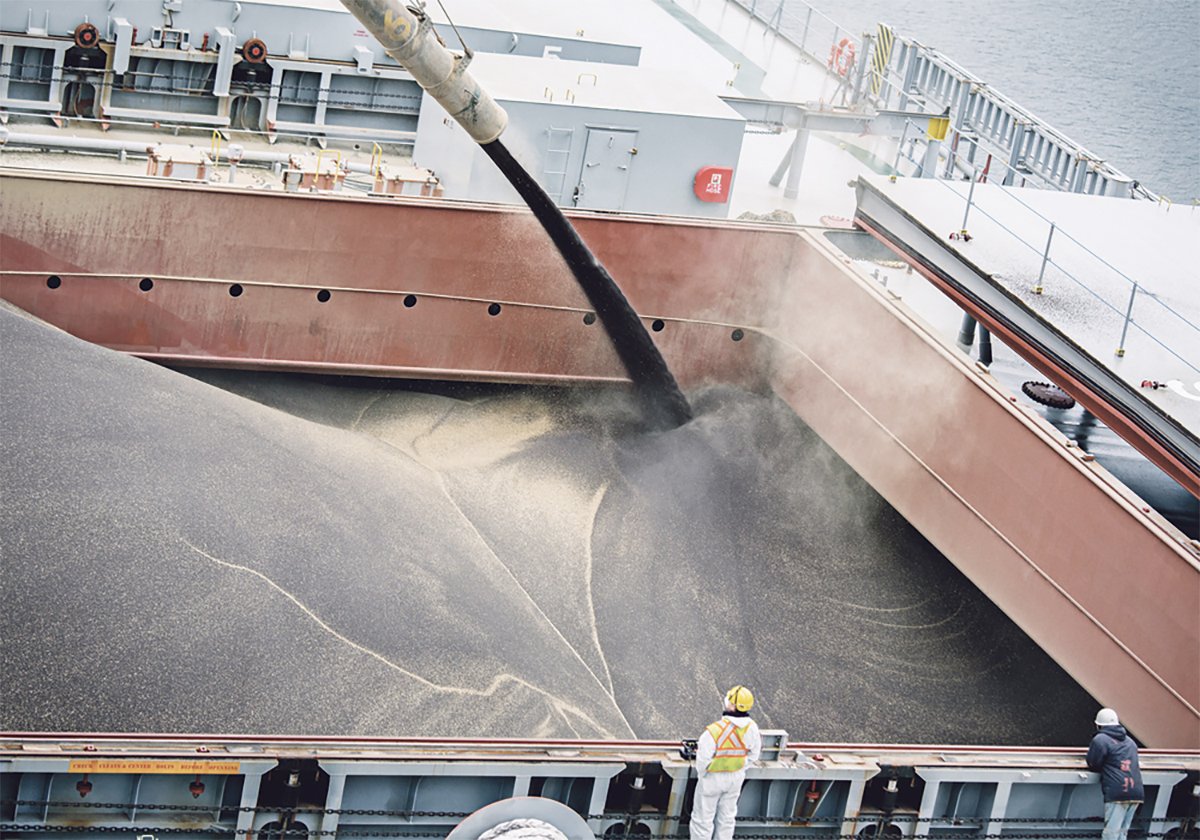Western Canadian farmers are suffering because U.S. trade laws are inherently unfair to foreigners, say two of the losers in the recent American decision to retain tariffs on Canadian hard red spring wheat imports.
The fix was in when the law was written, they say, even if it may not have been written that way on purpose.
“People outside the grain industry struggle with how the grain market operates,” said James Bair, vice-president of the North American Millers Association.
“Wheat markets can move five or 10 percent in a day depending on the weather.”
Read Also

Exports off to a slow start after last year’s torrid pace
Canadian grain, oilseed and pulse exports are off to a slow start, but there are some bright spots, according to the Canadian Grain Commission’s most recent weekly export data report.
A panel of the International Trade Commission, a U.S. government agency, recently found that Canadian durum imports are not hurting U.S. farmers, but members were split on whether it was the same for imports of Canadian red spring wheat.
Because the panel was split, the tariffs remain on Canadian spring wheat, cutting it out of the U.S. market.
“Effectively, the ITC said ‘we can’t make up our mind, so you lose,’ ” said wheat board general counsel Jim McLandress.
The wheat board considers the ITC decision unfair, penalizing Canadian grain even though it couldn’t reach a majority decision on whether American farmers suffered injury.
The board also believes it is unfair that the ITC did not need to prove the wheat board did something wrong in the way it marketed wheat to U.S. buyers. The two commissioners who found that American farmers were injured merely noted a price decline after Canadian wheat entered their market, and said there must be a connection.
The wheat board and the millers insisted Canadian wheat extracts premium, not discount, prices from the U.S. market Even though there was no direct evidence the wheat board undercut the market, the price decline was taken as sufficient proof that Canadian grain was lowering prices and therefore hurting American farmers, McLandress said.
The wheat board argued that U.S. domestic prices are based on world prices, not Canadian imports, but that did not sway the two commissioners.
“They just don’t want to deal with it that way,” said McLandress.
Bair said the price slide during the time the ITC and the U.S. Department of Commerce studied the market was a world grain market phenomenon and it was wrong to infer that Canadian grain was the cause.
“If I bought Canadian grain today at $4 a bushel, and in December bought North Dakota grain at $4.20 a bu., does that mean there was dumping,” Bair asked rhetorically.
“Of course it doesn’t. It means there was three weeks more of data and weather factors that affected the market.”
Bair said the vagaries of weather make grain markets more volatile than other markets. Price volatility and sudden surges or declines of production are not necessarily the signs of dumping.
For example, steel production is not radically increased by a fortunate rainfall at a critical time. Grain production is.
Judging grain prices and markets by the same criteria as other commodities isn’t fair or useful.
“It just doesn’t make sense,” said Bair.
But convincing U.S. politicians to change the rules probably won’t be easy, McLandress admitted.
“Moral suasion has been pretty ineffective so far,” he said.

















